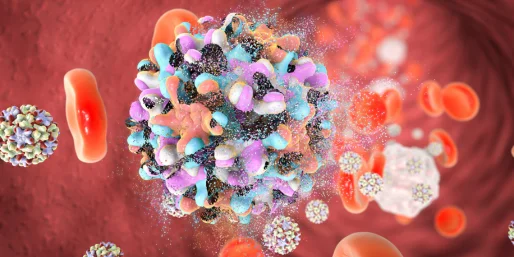Hepatitis C

Hepatitis C is a viral infection caused by the Hepatitis C virus (HCV), which primarily damages the liver and can result in severe complications like cirrhosis or liver cancer if left untreated. Early access to hepatitis C treatment in Mumbai is critical for preventing long-term damage. Unlike other forms of hepatitis, Hepatitis C often remains undetected in its early stages, making regular screening essential. For those seeking comprehensive care, the best hepatitis C hospital offers advanced antiviral treatments to manage and potentially cure the infection. As a chronic condition, Hepatitis C presents a major health challenge globally, often necessitating specialized care at a hospital hepatitis infection unit. Early detection and effective treatments are vital for improving patient outcomes and controlling its spread.
What is Hepatitis C?
Hepatitis C refers to a viral infection brought on through the Hepatitis C virus (HCV) that is primarily affecting the liver. It can result in serious damages to the liver, such as cirrhosis and even cancer of the liver when left untreated. In contrast to other types of hepatitis Hepatitis C can be unnoticeable in its early stages, which makes it difficult to identify without appropriate screening. The chronic Hepatitis C is considered to be a significant global health problem, leading to significant morbidity and death across the globe.
How does Hepatitis C occur?

Hepatitis C can be transmitted through contact with blood that is infected. The most frequent routes of transmission are sharing needles, or other injection equipment, receiving organ transplants or blood products as well as through unsafe medical procedures. It is also possible to pass from a pregnant woman who has been infected to her infant during pregnancy but this is much less often. Hepatitis C is not transmitted by contact with others like sharing food or hugging.
How Common is Hepatitis C?
- Insomnia and fatigue
- Jaundice (yellowing of the eyes or skin)
- Abdominal pain, particularly on the upper right side
- Dark urine and pale stool
- A loss of appetite
- Nausea and vomiting
- Joint pain
- Sofosbuvir
- Ledipasvir
- Velpatasvir
- Glecaprevir
Hepatitis C is among the most prevalent chronic bloodborne infections in the world with an estimated seven million people suffering from the condition. It is most common in areas with a poor health infrastructure. According to the World Health Organization (WHO) has confirmed that the disease is the most prevalent in areas of Asia and sub-Saharan Africa as well as regions in Africa and the Middle East. Despite the existence of effective treatments, Hepatitis C continues to cause serious liver diseases and remains the leading reason for liver transplantation.
Symptoms
Many people suffering from Hepatitis C don’t show symptoms until the first stages. When symptoms do manifest it could be:
Chronic Hepatitis C can cause more severe liver damage, such as the liver’s failure and cirrhosis which may cause other symptoms like confusion, swelling and even bruising easily.
Treatment
Hepatitis C therapy has improved dramatically in recent years thanks to Direct-acting Antiviral (DAA) drugs providing extremely effective treatments. The most effective treatment currently is an antiviral combination which work by reducing the ability of the virus to reproduce. The most frequently used DAAs are:
These medications are usually consumed by mouth for 8 to 12 weeks, based upon the extent of illness. In many instances they can treat Hepatitis C with a minimal risk of consequences. If you have severe damage to the liver, a transplant might be required



